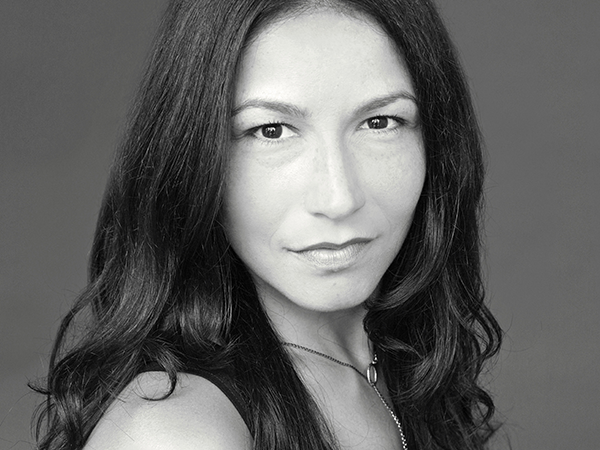Tamara Podemski at Women Making Waves
Saturday, March 9, 9:15am
Lord Nelson Suites, 1515 South Park Street
womenmakingwaves.ca
"I'm going to talk about the climate right now in regards to women's voices in front of and behind the screen," says Tamara Podemski. "I started 25 years ago as a 15-year-old girl—I've seen so many different trends and evolutions of how women and diverse voices are represented on the screen."
Podemski, a multi-disciplinary Anishnaabe/Ashkenazi artist, is in town Saturday for Women Making Waves, the annual conference for women in the film and TV industry, where she'll be a featured conversation.
"I think it's going to be a really interesting conversation, to compare the old days to now with a focus on the great developments that are currently happening," she says. "I'd like to give time to celebrate those, because it is the work of many years, many people and many women who have elevated the voices of women on screen and off screen."
Over the span of her career, Podemski has seen an increased presence of Indigenous people in television writers' rooms as well as in producer roles. "We are at a time where it seems like every month or so, we are celebrating a new achievement. The most recent is Heather Rae, who is an Indigenous producer from the States, she just signed a first-look deal with Amazon," she says. "That means she gets to look at every script Amazon gets. We have never had somebody of our community at that level of access. It makes me really hopeful. But it hasn't been overnight."
Podemski, who won a special jury prize at Sundance for the 2007 film Four Sheets to the Wind and currently appears on CBC's Coroner, considers gatherings like Women Making Waves extremely important.
"It is a tough industry to be in, film and TV, especially when you have additional challenges of representation and access that make an already difficult industry, that much more difficult," she says. "When you can share that experience with your fellow peers, I think anytime you can gather with your community, it is an empowering experience. I think that these gatherings are really important to remind us that our sisters are in stride with us and that we are stronger as a unified voice."
Podemski's move behind the camera—she just wrapped writing a new season of Future History—came largely due to frustration. "I know everybody has to work hard, but there is just something about working in an industry that is such a hustle and such a fight at times, especially with marginalized voices," she says. "The biggest statement I can make as a performer is to say no to something, whereas the biggest statement I can make as a writer is to make something. In terms of the action that creates the change, I have felt more empowered by the actions I can make as a writer than the actions that I don't make as an actor."
As an Indigenous woman, Podemski has witnessed the landscape of the film and television industry evolve over the years, and that's a good thing.
"I am living in a very different world of the industry than what is was in the early 90s," she says. "As much as I have reaped the benefits of this elevated Indigenous voice in film and television, I have also seen the rise of my fellow female writers, directors and producers and have been so inspired by the work that they're doing, now that I have now crossed over into that world. It's not to say that I have not felt the improvements as an actor. I do feel though that there's more agency in storytelling if you tell the stories yourselves."

